Staf Onderwijs & Onderzoek
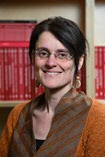
Prof. dr. Karène Sanchez Summerer is historica van het moderne Midden-Oosten. Haar onderzoeks- en onderwijsinteresses omvatten een relationele culturele en sociale geschiedenis van Palestina in de Ottomaanse en mandaatperiode, christelijke Arabische gemeenschappen in en uit het Midden-Oosten, minderheidsgemeenschappen in het Midden-Oosten, en Arabische christelijke diaspora in Europa (19e-20e eeuw). Ze is vooral geïnteresseerd in multilaterale en gelaagde verbanden. Ze geeft lezingen over taal en identiteit; Arabische christelijke gemeenschappen; conflict en co-existentie; migraties; en culturele diplomatie.
Zie: https://www.rug.nl/staff/karene.sanchez/

Dr Lucia Admiraal is historicus. In haar onderzoek richt zij zich op de culturele en intellectuele geschiedenis van het moderne Midden-Oosten, de geschiedenis van de Nahda beweging, historiografie en Arabische literatuur. Zij geeft colleges over de moderne geschiedenis van het Midden-Oosten, islam, en steden in het Midden-Oosten.
Zie: https://www.rug.nl/staff/l.e.admiraal/

Dr. Sasha Goldstein-Sabbah is historicus, gespecialiseerd in de moderne geschiedenis van Joden uit het Midden-Oosten en Noord-Afrika. Haar onderzoeksinteresses omvatten religieuze reacties op de moderniteit, vragen van burgerschap binnen imperiale netwerken, en pluralistische identiteitsconstructies. Haar huidige onderzoek richt zich op transnationale joodse netwerken in de negentiende en twintigste eeuw. Ze geeft lezingen over religie en politiek in het Midden-Oosten, joods-islamitische betrekkingen, de geschiedenis van de joden in de Arabische wereld en eetgewoonten in het Midden-Oosten.
Zie: https://www.rug.nl/staff/s.r.goldstein/

Dr. Mayada Madbouly is een socioloog, gespecialiseerd in het maken van herinneringen en erfgoedwerk in het Midden-Oosten en Noord-Afrika. Haar onderzoek richt zich op herdenkingspraktijken, sociale bewegingen en racialisering in de moderne MENA-regio. Ze doceert politieke sociologie, cultuurstudies en sociologie van internationale betrekkingen.
Zie: https://www.rug.nl/staff/m.m.s.madbouly/

Dr. Pieter Nanninga is historicus en religiewetenschapper gespecialiseerd in het moderne Midden-Oosten. Zijn onderzoek richt zich op conflicten in het hedendaagse Midden-Oosten, religie en geweld, de culturele geschiedenis van het transnationale jihadisme, propaganda en terrorisme. Zijn recente onderzoek focust met name op de conflicten in Syrië en Irak en de Islamitische Staat. Hij geeft colleges over Islam en moslims in het hedendaagse Midden-Oosten, islam en politiek en conflicten in het Midden-Oosten.
Zie: http://www.rug.nl/staff/p.g.t.nanninga/
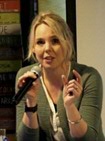
Dr. Kiki Santing is Arabiste en gespecialiseerd in het moderne Midden-Oosten. Haar onderzoek richt zich met name op de relatie tussen islam en politiek en op islamitische groeperingen; in het bijzonder de (Egyptische) Moslimbroederschap. Ze geeft met name colleges over recente ontwikkelingen in het Midden-Oosten.
Zie: http://www.rug.nl/staff/k.m.santing/
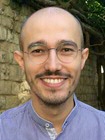
Dr Karim el Taki is een onderzoeker Internationale Betrekkingen, die zich richt op het moderne Midden-Oosten. Zijn onderzoek is gebaseerd op sociologische en historische benaderingen van de politiek in de regio. Zijn theoretische onderzoeksinteresses omvatten sociale (mis)erkenning in binnenlandse en internationale politiek, soevereiniteit en regionale en mondiale ordening. Empirisch bestudeert hij de zoektocht van Arabische regimes naar erkenning zoals die tot uitdrukking komt in hun militaire politiek, mediadiscours en lobbyactiviteiten in de Verenigde Staten. Hij geeft lezingen over de politiek en internationale betrekkingen van het Midden-Oosten, internationale organisaties en islam en moderniteit.
Zie: https://www.rug.nl/staff/k.el.taki/

Dr. Gretchen Head is een literatuurwetenschapper gespecialiseerd in Arabische verhalen uit de vroegmoderne tot moderne periode (14e-21e eeuw). Haar onderzoek richt zich op de spanningen tussen seculiere en religieus gefundeerde manieren van lezen en hoe Arabische literaire praktijken veranderden tijdens de overgang van manuscript naar drukwerk.

Hisham Hamad, MA, is docent en promovendus met een achtergrond in Talen en Culturen van het Midden-Oosten (Arabisch) en vertaalstudies. Hij doceert Arabische taalverwerving en gebruikt innovatieve en studentgerichte methoden. In zijn promotieonderzoek bestudeert hij de geschiedenis van vertalingen in het Arabisch in de negentiende en vroege twintigste eeuw, waarbij hij het transnationale veld van vertalingen in de Arabische wereld in kaart brengt met behulp van digital humanities tools.
Zie: https://www.rug.nl/staff/h.hamad/
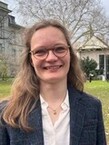
Dr. des. Sophie Moser is een wetenschapper in Midden-Oostenstudies met een antropologische benadering. Haar proefschrift onderzocht de onderhandeling van religieuze identiteiten in Twaalver sjiitische gemeenschappen op basis van de 'Āshūrā'-rituelen in Istanbul sinds de jaren 80. Haar onderzoeksinteresses omvatten het sjiisme, rituele praktijken, de herinneringscultuur, minderheden en vrouwelijke discoursen in de islam, met een focus op Turkije en Iran sinds de 20e eeuw. Ze doceert over de islam en moslims in het moderne Midden-Oosten.
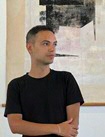
José Rafael Medeiros Coelho is promovendus met een academische achtergrond in sociologie, antropologie, geschiedenis en culturele studies. Zijn promotieonderzoek, getiteld "Ottomaanse Arabische migraties naar Latijns-Amerika (Antiochië-São Paulo): Mapping Transnational Hubs, Networks, and Cultural Heritage" onderzoekt de migratiegeschiedenis van Ottomaanse Arabische christenen naar Latijns-Amerika (19e-20e eeuw). Door de complexe wisselwerking tussen migratie, identiteit en erfgoed kritisch te onderzoeken, wil zijn onderzoek het begrip van transnationale verbindingen tussen het Midden-Oosten en Latijns-Amerika verdiepen en tegelijkertijd de heersende historische verhalen in twijfel trekken. Te midden van de urgentie van het mogelijke verlies van erfgoed door de aardbevingen van 2023 in Antiochië, gekoppeld aan de politisering van culturele identiteit in Turkije, zet zijn onderzoek zich in voor het behoud en de documentatie van het culturele erfgoed dat verbonden is met Antiochische Arabische christenen.
Zie: https://www.rug.nl/staff/j.r.medeiros.coelho/research

Eline van Erdewijk is promovenda aan de RUG en docent aan de Sorbonne Universiteit. In haar proefschrift onderzoekt Eline het ontstaan van racistisch antisemitisme onder de Europese bevolking in Frans Algerije vanaf de naoorlogse periode (1943) tot de onafhankelijkheid van Algerije (1962) door kritisch onderzoek van de populaire pers in het Frans, Spaans en Italiaans, en vanuit een vergelijkend perspectief met eerdere perioden van kolonisatie in Algerije sinds het Crémieux-decreet. Tot nu toe is er geen analyse gemaakt van hoe verschillende etnische afkomst bijdroeg aan antisemitisme onder Europeanen in Algerije. Algemeen wordt aangenomen dat het antisemitisme tussen 1943 en 1962 afnam als gevolg van de behoefte van de Europeanen om Algerije te behouden. Haar onderzoek verkent echter hoe het Europese antisemitisme bleef bestaan, ook al werd het minder publiekelijk geuit, en heeft tot doel het begrip van populaire antisemitische houdingen in een laatkoloniale omgeving te verdiepen.

Brandon Johnson is promovendus en doet onderzoek om de complexe wisselwerking tussen Amerikaanse missionarissen, Ottomaans geweld en Amerikaans buitenlands beleid aan het eind van de 19e eeuw te ontrafelen. Hoewel de geschiedenis van de missionaire diplomatie in het late Ottomaanse Rijk de laatste twee decennia grondiger is onderzocht, blijven studies die de schaal van de analyse verkleinen en blootleggen wat "feitelijke mensen en abstracte krachten" deden om de gebeurtenissen vorm te geven (Brown, "Microhistory and the Postmodern Challenge", 2003) een belangrijke ontbrekende schakel. Met behulp van nieuwe biografische en microhistorische benaderingen probeert Brandon deze brede, zelfs logge historische invloeden te traceren door de gearchiveerde uitwisselingen en onderhandelingen van twee invloedrijke personen te ontrafelen tijdens een bijzonder vluchtige periode van Ottomaans geweld, de Hamidian Massacres van 1894-1897. De correspondentie tussen Henry Otis Dwight (een Amerikaanse missionaris die bemiddelde tussen de Amerikaanse ambassade en de missionarissen van de American Board in Turkije) en de Amerikaanse ambassadeur in Turkije, Alexander Watkins Terrell, is doordrenkt van de dringende zorgen van die tijd en hun vaak tegenstrijdige standpunten en biedt een blik op de invloed van geweld in het late Ottomaanse Rijk op het prille buitenlandse beleid van de Verenigde Staten.
Brandon is de auteur van The Makings of a Missionary Diplomat: The Correspondences of Henry Otis Dwight, 1867-1884 (Isis Press, Istanbul, 2023).

Gülnur Demirci is een Double Degree PhD-student aan de RUG en de Malmö Universiteit. Haar promotieonderzoek, getiteld “Embodied Memory in Post-violence Contexts: Circassians - A Transnational Analysis,” onderzoekt hoe hedendaagse Circassische gemeenschappen in Turkije, Rusland en Duitsland belichaamde herinneringspraktijken hebben ontwikkeld en ingezet over de grenzen van naties heen, met betrekking tot de Russisch-Kaukasische Oorlog (1783-1864), hun massale deportatie uit hun thuisland (1864), en een voortdurende gevoel van 'ontworteling'.
In dit interdisciplinair onderzoek, dat gebruik maakt van studies over herinnering, cultuur, migratie en genocide, richt ze zich op de mnemotechnische capaciteit van lichamelijke praktijken bij het omgaan met traumatische verleden en hedendaagse contexten, evenals hoe verschillende sociaal-politieke contexten de lichamelijke representaties van cultureel geheugen vormgeven.

Elise Aghazarian is een promovendus die onderzoek doet naar de geschiedenis van de Christelijke Wijk in Jeruzalem. Ze is gespecialiseerd in de geschiedenis, samenleving, politiek en cultuur van het Midden-Oosten, met een bijzondere focus op stedelijke transformatie, het Palestijns-Israëlisch conflict, Armeniërs in de Arabische wereld en de Arabische taal. Eerder gaf ze les in Sociologie, coördineerde ze onderzoeksprogramma's en bood ze redactionele en consultatiediensten voor sociale en culturele projecten met betrekking tot de Arabische wereld. Naast haar promotieonderzoek vertaalt ze academische studies naar het Arabisch en geeft ze les in de Arabische taal en interculturele communicatie aan Nederlandse universiteiten en instituten.

Yasin Sari is een promovendus die onderzoek doet naar de zelfperceptie en identiteitsvorming van de Zaza, een Iraans sprekende etnische groep, in Turkije en Nederland. Zijn werk onderzoekt de religieuze (soennitisch en alevitisch) en politieke (socialistische, nationalistische, islamitische) dynamiek binnen de Zaza, met behulp van een emic benadering gebaseerd op veldwerk in Turkije en Nederland. Zijn studie maakt gebruik van theorieën over culturele hegemonie, (zelf)oriëntalisme, Third Space en transnationalisme om de complexiteit van de Zaza-identiteit te begrijpen en draagt bij aan de bredere discussie over identiteitsvorming van etnische groepen in en uit het Midden-Oosten.
